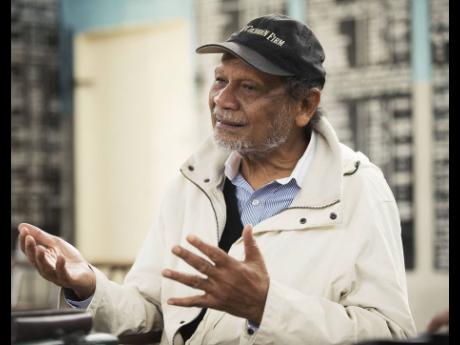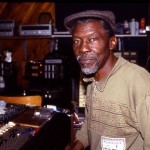By Dashan Hendricks/Observer writer—
Chairman and CEO of Can-Cara Development Limited, Joseph “Junior” Lincoln (Photo: Karl Mclarty)
AN unassuming man with a bright smile, which displayed both shyness and confidence. He sank in his chair and declared, “I don’t like being interviewed, I prefer to work in the background.”
“I’m Joseph Lincoln, but more popular known as Junior Lincoln,” he introduced himself at the start of the interview, saying he’s sitting in as the chairman and CEO of Can-Cara Development Limited.
“Can-Cara started in about 2000. We started as a development company which does large developments. Our first project as a new company was Whitewater Meadows, which was [to develop] 764 houses off Old Harbor Road [in St Catherine],” he explained. “Then about four years after, we entered the water and sewerage business.”
But getting into this business was not easy for Lincoln who admitted, he had no experience in development before entering the field. That lack of experience was a hindrance in convincing financial entities to back Can-Cara’s first project.
Lincoln — an ancient with a sharp wit — giving his age as “80 years old”, but with plans for the next 50 years, spent most of his life in the music industry, and in the last two decades, added developer to his repertoire.
“It’s very strange,” he continued. “One of the challenges I had at the time, is that my background for years is in the entertainment business. I was in England where I pioneered the music, reggae music. I had the biggest record company in England,” he said with a smile that brightened his face as he added, “I’m usually on that side,” pointing to where this reporter sat, indicating that he is usually the one asking the questions, rather than answering them during his time promoting Jamaican music across the world.

Lincoln, one of the early pioneers of Jamaican popular music and a native of Trench Town — the small southern St Andrew community credited with the development of reggae music — is still involved, though his focus these days is trained on development.
Currently in the music industry, Lincoln, who is the chairman of the Dennis Brown Trust, produces the annual Dennis Brown Tribute Concert in downtown, Kingston. He is also a founding member of Jamaica Reggae Industry Association (JaRIA), an entity dedicated to the promotion and preservation of Jamaican popular music and the welfare of those in the country’s entertainment industry.
“I took Reggae Sunsplash to England and Europe. I was a director of Reggae Sunsplash,” he continued in reflection on his past. Lincoln said these days, he’s into reggae music for its continued development as one who was around the giants including the biggest of them all, Bob Marley.
“I took Marley off stage already,” said Lincoln who pointed out that when he is promoting music, he transforms into a no-nonsense individual.
“I was in the business from I was 13 years old, so now I feel like a mother with the responsibility to nurture the music having grown up with many of the people who are now legends. When I went to England at 17 years old, I was already keeping some of the biggest dances in Jamaica with Coxsone sound system,” he said in reference to Sir Clement “Coxsone” Dodd, a record producer who was influential in the development of ska and reggae in the 1950s, 1960s and beyond. Lincoln said Coxsone, as Dodd was affectionately called, “was a very good friend”.

Lincoln said many people were surprise when he packed his bags and headed for England in 1959 because he was doing reasonably well for himself. They were also surprised when he returned to Jamaica decades later, because he was operating a successful music business in London.
But Lincoln said when he returned to the island in 1989, he was driven by a desire to take a break from it all. He returned and decided to spend a year touring Jamaica, “to get to know the place because as a Kingston boy, I didn’t know much of Jamaica.”
During those travels across the island, he said he began to realize that residential developments lacked adequate green spaces and were not people-friendly. Years later, he decided that he would do something about that in his own way. In 1999, Can-Cara was registered and started operations a year later at a time when Lincoln was at an age at which most people were preparing for retirement. For him, however, retirement was not an option.
“I’ve been working from I was 13 years old. I can’t stop now. I have the kind of mind which has to be stimulated. All now, I am planning things for the next 50 years,” he said.
But why move from music to development?
“Purpose,” he said. “My life is about purpose. I don’t choose anything for me.”
For a man who spent his entire life in entertainment, the lessons learnt from that business were to be applied to a venture in which he was ‘wet behind the ears’.
“The entertainment business taught me everything about business. There is no industry as creative as the entertainment business when it comes to marketing. There is no industry that keeps you on your toes when it comes to contracts, like the entertainment business.”


You must log in to post a comment.